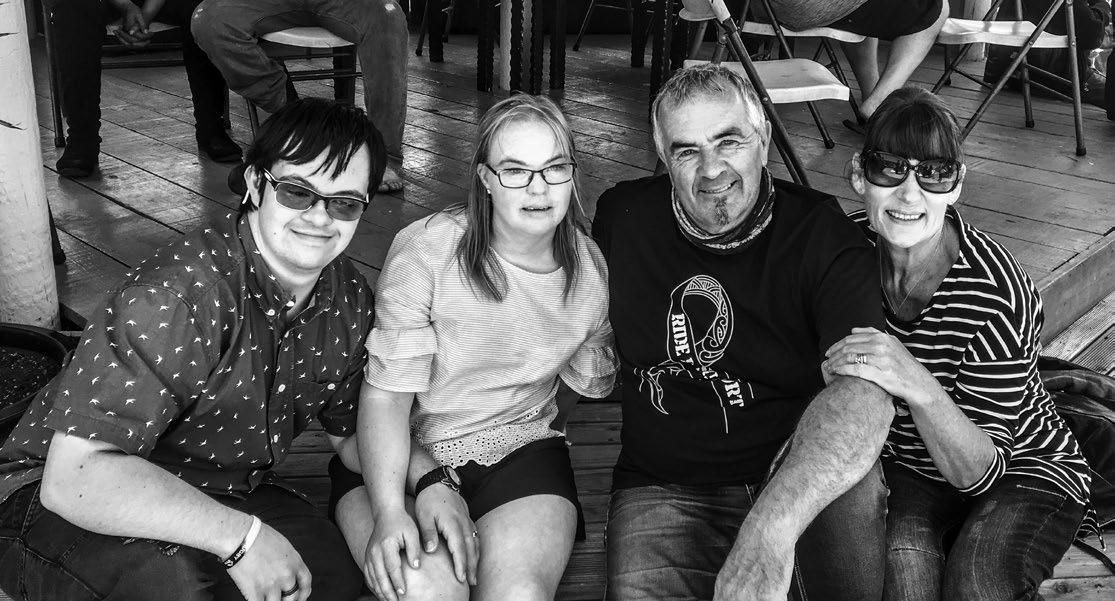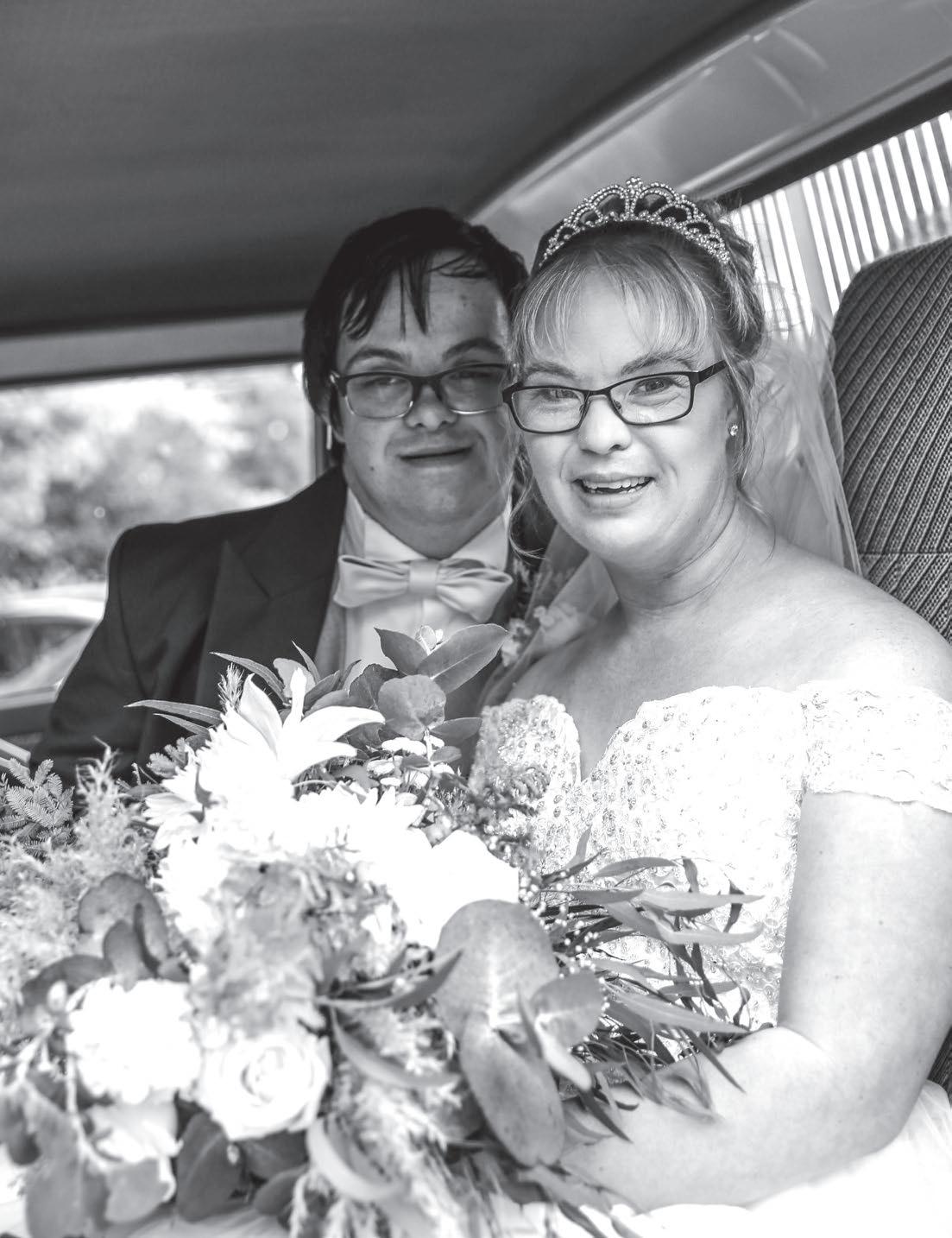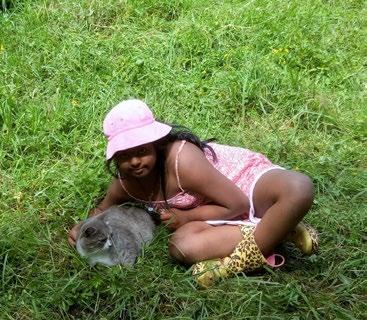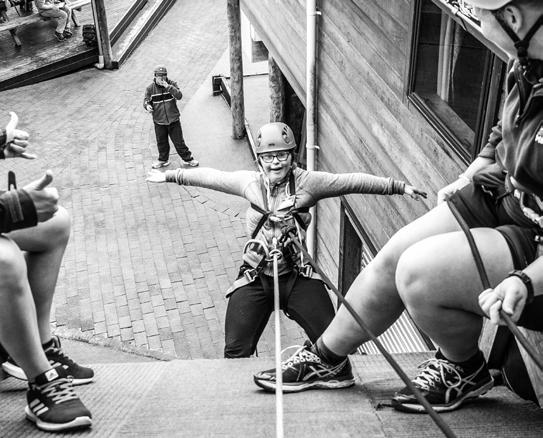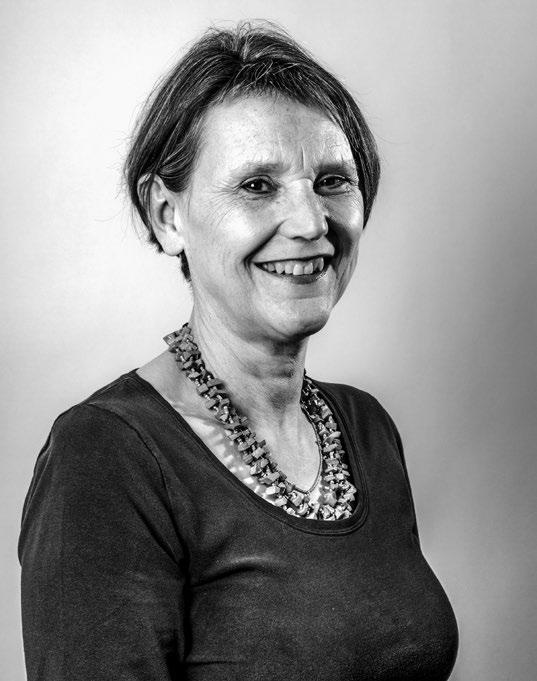
6 minute read
CHAT 21 invites readers to join educational conversation
By Margi and Ken Leech
So, you have a child with Down syndrome now? How will I teach this child? What shall I teach this child? Where will this child go to school? What’s the future after school? Only parents who have a child with special needs ask these questions pretty early on in their child’s life. We are looking for hope, encouragement and guidance from those who are further along in the journey. For educators who read these articles, they will give you the same insight and encouragement. We are all in this together. I am so thankful for the people who came into our lives when Emily was born. Mostly, they were the parents of children just ahead of us as well as those who were on the same journey at the same time. CHAT 21 is starting a series of education-focused articles, in which we will be sharing our journey and what we learned along the way. We will introduce you to others from all over the world who have made huge contributions to the education of children with Down syndrome. We invite you to join me on this journey too. Send in your moments of learning and discovery to share with others. If you want to write a complete article, go for it and submit it to editor@nzdsa.org.nz Firstly, enjoy your dearest one. You are the child’s first teacher. Research shows how important you are in the child’s life. When your child looks into your eyes, he/she is learning communication, love and acceptance. No device is needed, unless they are vision impaired. (Get that checked really early on!) Secondly, play all those games, sing all those songs, go on outings and cuddle your precious one as you would for any child. Thirdly, consider the use of your phone. I meet so many teachers who are lamenting that children without special needs are coming in to school with very little language or the ability to pay attention and learn. They can only speak in two or three-word sentences. Take every opportunity when your child is in the stroller to turn it around and chat with them. If your child is in care - have special times of conversation and play together. I know it’s hard when they also need so much intensive care. Lastly, these early years are the most important in a child’s life. These are the foundation years. Families that have been impacted by earthquakes know the value of having good foundations. So, what are the foundations for education? Love, connection and support to build a strong relationship. Education is all about relationships. Build great relationships with your child, your partner, your family members, your neighbours and wider communities. Your child belongs to you and all of these communities. They will be enriched by your child. I’ve lost count of the families who have told me about the positive impact their child has had on their family, friends and community. Our children make us look beyond ourselves and look for solutions. Most of the people I will share about in these articles started incredible services in education and health and community involvements as a result of being close to a child with Down syndrome. Love lasts a long time and multiplies as it is shared. As my dear friend Ruth used to say, “Love will find a way!” Your child has a purpose in our world. Just being here contributes to all of us. We are challenged out of our selfishness. We are challenged towards generosity, patience, kindness and grace. We are reminded that it takes a village to raise a child. My husband Ken and I were really challenged by these values when Emily lost many of her capabilities in her puberty years. Intelligence does not make a person more valuable, even though our society says it does. What have Ken and I learned along the way? Education is the key to a future, but if success is not seen, it’s not the end of the world. Emily began her life with so much promise. She was able to read and write, and order numbers and sequence patterns Your child has a purpose in our world. Just being here contributes to all of us.
before she went to school. I am so thankful for this. Begin early while you have your child at home and have time to put in the foundations – SLT, learning patterns and sequences, numbers and groupings, language that describes positions (under, over, between, next etc.), holding a pencil and writing names and short words of significance. Emily’s progress through an intervention programme with Sarah Goodall and primary school was very encouraging. We did have to change schools because of the appalling attitude of senior staff. The move to the new school brought a joy of inclusion. Watching Emily participate in band, athletics, camps, assembly items, school shows, Library monitor and hang out with friends was a particular delight. Then puberty kicked in along with a change of school, less inclusive staff attitudes and consequentially bullying, brought devastating consequences. It was a kind of mental breakdown. She regressed terribly, back to needing support for sleeping, eating, toileting, personal care and dressing. Her voice disappeared and became the occasional whisper. The loss and grief for all of us has been heart-breaking. Now Emily is 19 and soon to be 20. I am so incredibly thankful that she did not forget how to read and respond to words and numbers. She did not forget her PIN number on her bank card or how to use it! She continued to play her favourite games on her iPad and family board games. She still whispers when prompted, but recently we have heard her voice - loud and clear! She speaks single words that reflect her understanding of what’s happening. She is making connections again! We have discovered that we are not alone either. The retreat in October sponsored by the NZDSA was a very special encouragement. It spurred me on to seek again help from the international community. From my courageous post on the NZ Parent’s Facebook page, several other mothers have contacted me. Books and research papers from the DS communities and Dr Chicoine have helped us. Emily is now in an adult transition programme where the focus is on personal care, communication and social skills, employment skills, living skills, and literacy and numeracy in life skills. We also home school Emily every Monday, employing a young woman to work on personal care, homemaking skills and therapeutic horse riding. We set goals for each month: Emily will make Ginger Crunch, following the recipe and using the tools correctly with reducing prompts and support. Our waist lines will survive because the slice is for Grandma’s birthday party coming up. We are researching her future living and daytime activities that will be meaningful and purposeful. If you are in a tough spot, don’t give up hope. If you have a pre-schooler, start now. Early childhood intervention starts at 18 months in the UK with purposeful teaching. Sue Buckley and others are at the forefront of this practice and seeing incredible results for some children. If you have a school-age child, set very clear monthly goals that can be achieved at home and school. These goals can be measured and talked about. We will write more about these in the coming articles. Make the most of playing and enjoying life together. Challenge their brains and thinking. So many behaviour issues with Emily were attributed to her being bored. Set two small goals to achieve over a month and you will not regret it. We had no idea how to begin with but Emily showed us.
If you want to know more, here are some websites to explore:
https://www.ds-int.org/
https://www.dseinternational.org/en-gb/
https://www.dsrf.org/
https://www.inclusive.tki.org.nz/guides/downsyndrome-and-learning/
And of course, please send in your own stories.


